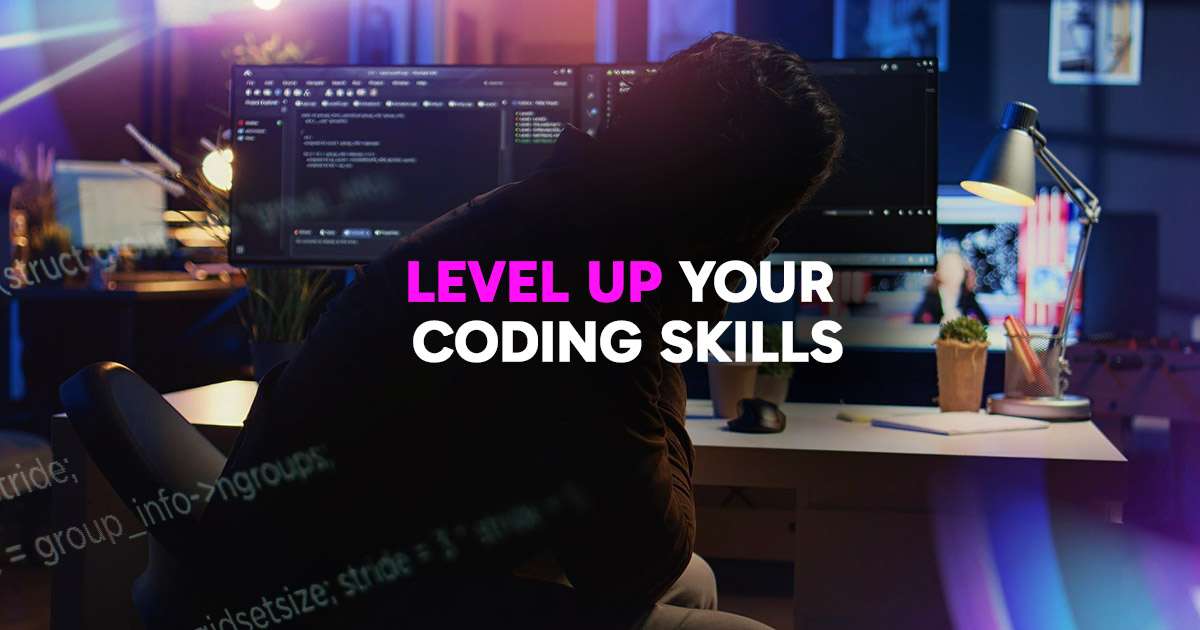Level Up Your Coding Skills: 12 Proven Strategies to Become a Better Developer

A career as a coder is one of the hottest professions right now, thanks to rapid advancements in technology across all sectors. Businesses depend more and more on software and applications to make their operations smoother, improve customer experiences, and innovate their products. Coders are the masterminds behind these changes, building and maintaining the software systems that companies rely on every day. Whether it’s creating the next big app that changes how we interact with technology or setting up strong security measures to protect important data, coders’ skills are critical in today’s business world.
Recent reports indicate that the demand for software developers and coders is expected to grow by 25% over the next ten years, which is much faster than most other jobs. This highlights how vital coders are in pushing forward economic and technological growth. If you’re drawn to a career in coding, becoming really good at it is crucial if you want to rise above the competition. But what does it take to become not just a good coder but an exceptional one?
12 Key Technical Skills to Improve and Excel in Coding
Coding is a journey that’s both exciting and challenging, especially when you’re just starting out. To make this journey smoother, it’s essential to build a strong foundation of key technical skills.
1. Understanding Algorithms
Algorithms are like step-by-step instructions for solving problems, much like a recipe guides you in cooking. For example, when you need to sort a list of names quickly within an app, implementing a sorting algorithm can expedite the process significantly. To get hands-on experience, practice on platforms like LeetCode or HackerRank, and consider starting with the book “Grokking Algorithms,” which is excellent for beginners.
2. Mastering Data Structures
Data structures are methods of organizing and storing data to facilitate easy access and modification. For instance, a hash map can be used to efficiently look up usernames in a large database, minimizing the time needed for such operations. Enhance your understanding by enrolling in courses on Coursera or edX, and delve into “Introduction to Algorithms” for a comprehensive grasp of data structures.
3. Learning Multiple Programming Languages
Each programming language possesses unique features tailored for specific tasks. For example, Python is ideal for data analysis, whereas JavaScript excels at creating interactive web pages. Platforms such as Codecademy and freeCodeCamp provide practical coding exercises, enabling you to learn and apply different languages effectively.
4. Familiarizing with Development Tools
Development tools assist in writing, testing, and managing code efficiently. An example is Git, a version control tool that helps track changes and facilitates collaboration on projects. GitHub offers tutorials for mastering Git, while Visual Studio Code serves as a beginner-friendly coding environment to ease your development process.
5. Studying Design Patterns
Design patterns provide tried-and-true answers to typical software design problems. The Singleton pattern, which guarantees the creation of only one instance of a resource (like a database connection), is a useful application. Begin your exploration with “Head First Design Patterns,” an engaging book that introduces these concepts in a comprehensible manner.
6. Becoming Proficient in SQL and Databases
SQL is the language used to manage and manipulate databases. For example, writing SQL queries can be instrumental in extracting the data required for quarterly sales reports. Practice on platforms like SQLZoo or Khan Academy, and experiment with MySQL’s free version to gain practical experience and enhance your proficiency.
7. Exploring Web Development Frameworks
Frameworks streamline the process of building and maintaining web applications. For instance, Django or Flask can be used to quickly set up a backend for your web app. Start with the official documentation for frameworks like React or Django, and consider taking comprehensive courses on Udemy to deepen your understanding.
8. Understanding Networking and Security Basics
Networking involves connecting systems for data exchange, while security ensures data protection. Implementing HTTPS on a site, for example, ensures secure data transmission, which is crucial for e-commerce platforms. Cybrary offers introductory courses that cover the fundamentals of networking and security.
9. Learning Debugging Techniques
Debugging involves identifying and fixing errors in code. Using breakpoints in an IDE, for instance, can help you pinpoint where a program goes wrong during execution. Tools like Chrome DevTools or PyCharm’s debugger are excellent resources for practicing and honing your debugging skills.
10. Acquainting with Operating Systems
Operating systems manage hardware and software resources on computers. Optimizing your program to run smoothly on both Windows and Linux, for example, can significantly expand its usability. “Operating System Concepts” provides a thorough foundation, while VirtualBox allows for experimentation with different operating systems.
11. Practicing Object-Oriented Programming (OOP)
OOP organizes code into objects, making it modular and easier to manage. Designing a game with classes and objects to manage different characters and actions is a practical application of OOP principles. Engage with projects on Codecademy or read “Object-Oriented Programming for Dummies” to strengthen your skills in this area.
12. Engaging with Cloud Computing Services
Cloud computing provides on-demand computing resources via the internet. Deploying applications on AWS, for example, allows you to leverage scalable and flexible computing resources. AWS’s free tier offers a starting point, and A Cloud Guru provides structured learning paths to explore cloud services further.
Embrace Your Coding Skills Journey
Learning to code is like setting off on an exciting adventure. It takes patience, hard work, and a real love for what you’re doing. This guide is here to help you every step of the way, making complicated skills easier to understand and master. With these skills, you’ll be ready to solve tough problems and create amazing projects that can change the world. Keep your passion alive and remember, each small step brings you closer to achieving your dreams in technology.

